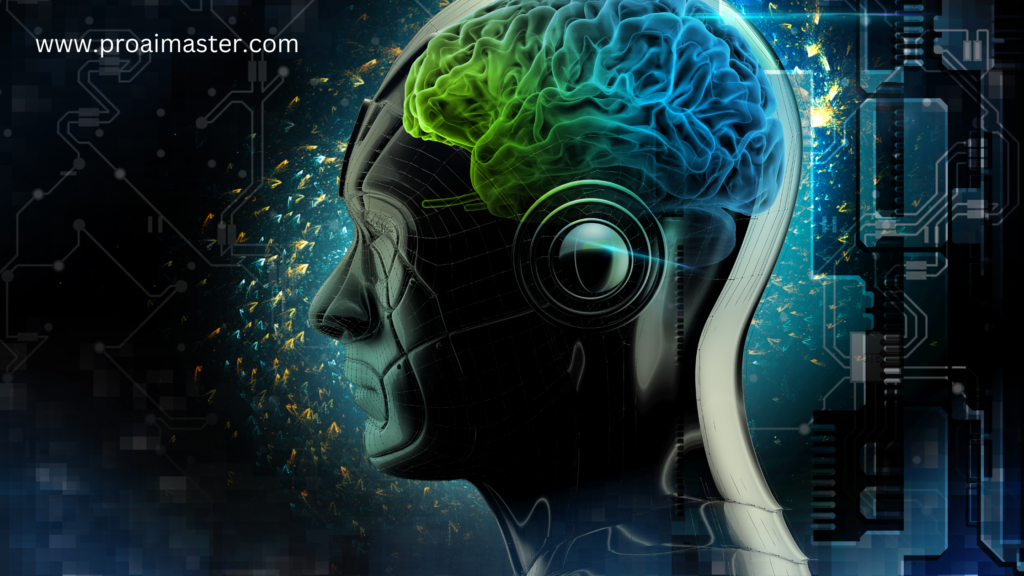What is Auto-GPT, and why does it matter? In today’s digital era, the evolution of artificial intelligence (AI) has revolutionized numerous fields, including natural language processing (NLP).
One prominent breakthrough in NLP is Auto-GPT, a cutting-edge technology that has garnered significant attention. In this article, we will delve into what Auto-GPT is, how it functions, and most importantly, why it matters in the context of AI-driven language generation.
Understanding Auto-GPT:
Auto-GPT harnesses the power of deep learning techniques, particularly transformer-based models, to generate human-like text in a variety of applications.
The Functioning of Auto-GPT:

Auto-GPT operates through a two-step process: pre-training and fine-tuning. In the pre-training phase, the model is exposed to vast amounts of text data from the internet, absorbing patterns, grammar, and contextual information.
It learns to predict the next word in a sentence, forming a strong language foundation. The fine-tuning phase involves training the model on specific datasets for targeted tasks, such as article writing, chatbots, or customer support.
Unleashing the Power of Language Generation:
Auto-GPT’s impact is far-reaching, and its potential applications are diverse. Let’s explore some key areas where Auto-GPT shines and why it matters.
Advancements in Content Creation:

Auto-GPT significantly simplifies and accelerates content creation across various domains.
With the ability to generate coherent and engaging text, it assists writers, marketers, and content creators in producing high-quality articles, blog posts, social media captions, and more. By automating repetitive tasks, Auto-GPT frees up valuable time for professionals to focus on strategic aspects of their work.
Enhanced Customer Experience:
In the realm of customer support and chatbots, Auto-GPT plays a pivotal role in enhancing user experience.
By leveraging its natural language understanding capabilities, Auto-GPT can understand and respond to user queries in a conversational manner. This enables businesses to provide real-time assistance and personalized interactions, leading to improved customer satisfaction and engagement.
Breaking Language Barriers:

Auto-GPT has the potential to bridge language barriers by facilitating translation services.
Its language generation capabilities enable the automatic translation of text from one language to another, providing a convenient and efficient solution for communication across diverse linguistic backgrounds. This can have a profound impact on global collaboration, trade, and cultural exchange.
Empowering Virtual Assistants:
Virtual assistants powered by Auto-GPT can greatly enhance productivity and streamline daily tasks.
By understanding natural language input, they can perform actions like setting reminders, sending emails, scheduling meetings, and providing relevant information. This advancement simplifies human-computer interaction, making technology more accessible and user-friendly.
Addressing Ethical Considerations:
As with any powerful technology, Auto-GPT raises ethical concerns that must be addressed. The potential for misinformation, biased content, and malicious use of automated language generation demands careful scrutiny.
It is crucial to implement robust safeguards, promote transparency, and continually monitor and update the models to ensure responsible and unbiased AI systems.
The Future of Auto-GPT:
Auto-GPT’s journey is still in its early stages, and its future holds immense possibilities. Ongoing research and development aim to enhance its capabilities, address limitations, and make it more adaptable to specific domains and industries.
As it evolves, Auto-GPT is likely to become an indispensable tool in our daily lives, revolutionizing content creation, communication, and human-computer interactions.
Enabling Personalized Recommendations:
Auto-GPT’s language generation capabilities extend to personalized recommendations. By analyzing user preferences and historical data, Auto-GPT can generate tailored suggestions for products, services, movies, books, and more.
This personalized approach enhances user experience, increases engagement, and drives customer satisfaction and loyalty.
Improving Accessibility:

Auto-GPT plays a crucial role in improving accessibility for individuals with disabilities. Through voice interfaces and text-to-speech conversion, it enables people with visual impairments or motor disabilities to interact with technology more effectively.
Auto-GPT-powered applications, such as screen readers and voice assistants, provide greater independence and inclusivity.
Accelerating Research and Development:
Auto-GPT has the potential to expedite research and development in various fields. Scientists and researchers can leverage its language generation capabilities to analyze vast amounts of text data, extract insights, and discover patterns.
This can facilitate advancements in fields like medicine, climate research, social sciences, and more, leading to innovative solutions and breakthrough discoveries.
Enhancing Education and E-Learning:
Auto-GPT’s ability to generate coherent and informative text makes it a valuable tool for education and e-learning platforms. It can assist in creating interactive and engaging educational content, automated assessments, and personalized learning experiences.
Auto-GPT-powered virtual tutors and intelligent tutoring systems can provide real-time feedback, adapt to individual student needs, and improve learning outcomes.
Fostering Creativity and Innovation:
Auto-GPT’s language generation capabilities can serve as a source of inspiration and creativity for artists, writers, and designers. It can generate prompts, storylines, and ideas to kickstart the creative process.
By automating certain aspects of creative work, Auto-GPT allows professionals to explore new horizons, experiment with different concepts, and push the boundaries of their artistic endeavors.
Supporting Data Analysis and Reporting:

Auto-GPT’s proficiency in generating text can assist in data analysis and reporting. It can transform raw data into comprehensive reports, summarizing key insights, trends, and patterns.
This streamlines the reporting process, enabling businesses and organizations to make data-driven decisions more efficiently.
Driving Innovation in Natural Language Processing:
Auto-GPT’s emergence has spurred innovation and research in the field of natural language processing. Its success has inspired researchers and developers to explore and enhance language models further.
This has led to the development of more advanced models with improved capabilities in understanding and generating text, driving the overall progress of NLP.
Reducing Language Barriers in Online Content:
Auto-GPT’s language generation capabilities can facilitate the creation of multilingual content. By automatically translating text, it allows content creators to reach a broader audience and overcome language barriers.
This promotes cultural exchange, knowledge sharing, and global collaboration in an increasingly interconnected world.
Conclusion:
Auto-GPT represents a significant breakthrough in automated language generation, harnessing the power of AI and NLP to generate human-like text with remarkable fluency. Its applications span across content creation, customer support, language translation, and virtual assistance, making it a versatile and valuable technology.
However, it is crucial to approach its deployment with ethical considerations in mind to mitigate potential risks. As Auto-GPT continues to evolve, it promises to shape the future of AI-driven language generation, revolutionizing the way we interact with technology and communicate with each other.
FAQs
What is Auto-GPT?
Auto-GPT stands for “Automated Generative Pre-trained Transformer.” It is an advanced technology that utilizes deep learning techniques and the GPT architecture to automate the generation of human-like text.
How does Auto-GPT work?
Auto-GPT works through a two-step process: pre-training and fine-tuning. In the pre-training phase, the model learns from vast amounts of text data, acquiring language patterns and contextual understanding. In the fine-tuning phase, the model is trained on specific datasets for targeted tasks, such as content creation, customer support, or translation.
What are the applications of Auto-GPT?
Auto-GPT has diverse applications, including content creation, customer support, language translation, virtual assistance, personalized recommendations, accessibility, research, education, creativity, data analysis, and natural language processing.
How does Auto-GPT enhance content creation?
Auto-GPT simplifies and accelerates content creation by generating high-quality, coherent text. It assists writers and content creators in producing articles, blog posts, social media captions, and more, freeing up time for strategic tasks.
Can Auto-GPT improve customer support?
Yes, Auto-GPT can enhance customer support by providing real-time assistance and personalized interactions. Its natural language understanding capabilities enable it to understand and respond to user queries in a conversational manner, improving customer satisfaction.
Does Auto-GPT have translation capabilities?
Yes, Auto-GPT can facilitate language translation by leveraging its language generation capabilities. It can automatically translate text from one language to another, breaking down language barriers and enabling effective communication across linguistic backgrounds.
Is Auto-GPT useful for virtual assistants?
Absolutely. Auto-GPT empowers virtual assistants by understanding natural language input and performing various tasks, such as setting reminders, sending emails, scheduling meetings, and providing relevant information. This enhances productivity and simplifies human-computer interaction.
What are the ethical considerations associated with Auto-GPT?
Auto-GPT raises concerns about potential misinformation, biased content, and malicious use. It is crucial to implement safeguards, promote transparency, and continually monitor and update the models to ensure responsible and unbiased AI systems.
How does Auto-GPT contribute to research and development?
Auto-GPT can expedite research and development by analyzing large volumes of text data, extracting insights, and discovering patterns. This can drive advancements in fields such as medicine, climate research, social sciences, and more.
What does the future hold for Auto-GPT?
The future of Auto-GPT is promising. Ongoing research and development aim to enhance its capabilities, address limitations, and make it more adaptable to specific domains and industries. It is likely to become an indispensable tool in daily life, revolutionizing various aspects of communication and technology.

Muhammad Ahmad is a dedicated writer with 5+ years of experience delivering engaging and impactful content. He specializes in simplifying complex topics into easy-to-read articles.


